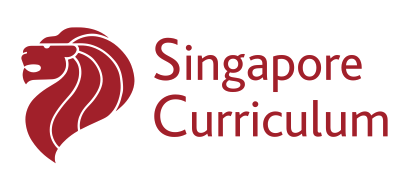
The Singapore Curriculum is internationally recognized for its rigor, particularly in mathematics and science, where students consistently rank highly in global assessments. The Singapore Ministry of Education (MOE) oversees the curriculum from Primary School through Pre-University (Junior College or Polytechnic). The curriculum emphasizes problem-solving, critical thinking, foundational knowledge, and skill development, with a balance between academic, physical, and moral education.
1. Structure of the Singapore Curriculum
The Singapore education system is organized into several stages:
- Primary School (Primary 1-6): Ages 6-12, culminating in the Primary School Leaving Examination (PSLE).
- Secondary School (Secondary 1-4/5): Ages 12-16, leading to the GCE ‘O’ Level or ‘N’ Level exams.
- Pre-University (Junior College, Polytechnic): Ages 16-18, leading to the GCE ‘A’ Level exam or Polytechnic diplomas.
Each stage has a defined focus that builds foundational skills in primary school and introduces specialization in secondary school.
2. Singapore Curriculum by Key Stages
Primary School (Primary 1-6)
Focus: Foundational skills in literacy, numeracy, and social-emotional development, along with exposure to creative, physical, and moral education.
Core Subjects:
- English Language: Reading, writing, comprehension, grammar, and oral communication.
- Mathematics: Emphasis on problem-solving and foundational skills such as number sense, operations, fractions, and basic geometry.
- Mother Tongue Languages (MTL): Students study either Mandarin, Malay, or Tamil, with a focus on listening, speaking, reading, and writing to promote bilingualism.
- Science (from Primary 3): Introduction to life sciences, physical sciences, environmental science, and inquiry-based learning.
- Social Studies: Understanding Singapore’s culture, values, and history, fostering national pride and citizenship.
- Art and Music: Creative expression, art appreciation, music theory, and performance skills.
- Physical Education: Fundamental motor skills, physical fitness, sports, and games.
- Character and Citizenship Education (CCE): Moral and ethical education, social responsibility, resilience, and decision-making.
Assessment: Students complete the Primary School Leaving Examination (PSLE) in Primary 6, assessing English, Math, Science, and Mother Tongue proficiency. PSLE results determine secondary school placement.
Secondary School (Secondary 1-4/5)
Students enter secondary school based on their PSLE results, placed in Express (4-year), Normal Academic (5-year), or Normal Technical (5-year) streams. Each stream has different academic requirements, with the flexibility to move between streams.
Core Subjects in Secondary School:
- English Language and Literature: Advanced reading comprehension, writing, critical analysis, literature, and oral skills.
- Mathematics: Topics expand to include algebra, geometry, trigonometry, and statistics. In later years, students choose between Additional Mathematics (for higher-level math) and Elementary Mathematics.
- Science: Integrated science in the first two years, followed by specialization in subjects like Chemistry, Physics, and Biology. Emphasis on practical experiments, scientific inquiry, and critical thinking.
- Humanities: History, Geography, and Social Studies with a focus on local and global events, critical thinking, and understanding human behavior.
- Mother Tongue Languages: Continued study of Mandarin, Malay, or Tamil, with advanced writing, reading, and cultural education.
- Character and Citizenship Education (CCE): Expands to cover ethics, social responsibility, and national education.
- Physical Education (PE): Emphasis on physical fitness, teamwork, and sportsmanship through various sports and physical activities.
Specialized and Elective Subjects:
- Design and Technology (D&T): Problem-solving, design thinking, and hands-on projects.
- Food and Consumer Education (FCE): Nutrition, food preparation, and consumer education.
- Art and Music Electives: Opportunities for deeper exploration in art, music, and performing arts.
Assessment: Students in the Express stream take the GCE ‘O’ Level exams, while those in the Normal streams take the GCE ‘N’ Level exams, with the option to progress to ‘O’ Levels.
Pre-University (Junior College, Polytechnic)
Students choose between Junior College (leading to the GCE ‘A’ Levels) or Polytechnic (vocational diploma programs), depending on their academic performance, interests, and career goals.
Junior College (JC) Pathway: A two-year program with a focus on academic rigor and preparation for university.
Core Subjects: General Paper, Project Work, and Mother Tongue.
Subject Groups:
- Humanities and Arts: Literature, History, Geography, Economics, Art.
- Mathematics and Sciences: Mathematics, Biology, Chemistry, Physics.
- Languages and Linguistics: English, General Paper, Mother Tongue.
- Knowledge and Inquiry (KI): An interdisciplinary subject that promotes critical thinking and epistemological study.
Assessment: The GCE ‘A’ Level exam, with subjects chosen in a “H1” (subsidiary level), “H2” (higher level), or “H3” (advanced level) structure, determines university eligibility.
Polytechnic Pathway: A three-year vocationally oriented program offering diplomas in fields like engineering, business, information technology, health sciences, and design.
- Courses and Modules: Programs are hands-on, including internships, projects, and industry collaboration to provide practical experience.
- Assessment: Continuous assessment and exams, with diplomas awarded at the end of the program, preparing students for direct entry into the workforce or specific university programs.
3. Key Subject Focuses in the Singapore Curriculum
Mathematics
Singapore Math is renowned for its focus on problem-solving and conceptual understanding. It uses a concrete-pictorial-abstract approach to help students understand math concepts deeply and systematically.
- Primary Level: Number sense, basic arithmetic, fractions, decimals, and basic geometry.
- Secondary Level: Algebra, geometry, trigonometry, data analysis, and introduction to calculus (for advanced levels).
- Junior College Level: Advanced calculus, statistics, and H3 Math options for top students.
Science
Science education in Singapore emphasizes inquiry-based learning and critical thinking, with hands-on experiments and practical applications.
- Primary Level: Basics of life sciences, physical sciences, and earth sciences, fostering curiosity.
- Secondary Level: Biology, Chemistry, Physics, with experiments and real-life applications.
- Junior College Level: Advanced topics in Biology, Chemistry, and Physics, including organic chemistry, thermodynamics, and genetics.
English Language
The English curriculum emphasizes comprehension, critical analysis, and effective communication.
- Primary Level: Focus on foundational literacy, vocabulary, and basic grammar.
- Secondary Level: Advanced comprehension, literature analysis, essay writing, and public speaking.
- Junior College Level: Critical thinking, argumentative writing, and academic discourse, particularly in the General Paper.
Mother Tongue Languages
The bilingual policy mandates that students study a Mother Tongue Language (Mandarin, Malay, or Tamil) to maintain cultural heritage and multilingualism.
- Primary and Secondary Level: Emphasis on oral proficiency, reading, writing, and understanding cultural context.
- Junior College Level: Advanced language skills, cultural discussions, and literature in the Mother Tongue.
Humanities
The humanities curriculum in Singapore promotes global awareness, historical understanding, and critical thinking.
- History and Social Studies: Local and world history, citizenship, and contemporary global issues.
- Geography: Physical and human geography, environmental issues, and urbanization.
- Economics (JC Level): Principles of economics, microeconomics, macroeconomics, and Singapore’s economic policies.
4. Assessment and Progression
- Primary School: Continuous assessment and PSLE in Primary 6.
- Secondary School: Continuous assessment, with GCE ‘N’ or ‘O’ Levels at the end of secondary school.
- Junior College: GCE ‘A’ Levels for university entrance.
- Polytechnic: Diplomas awarded upon completion, with options for university articulation or direct workforce entry.
5. Key Strengths of the Singapore Curriculum
- Emphasis on Problem-Solving: Subjects, particularly mathematics, emphasize deep conceptual understanding and problem-solving skills.
- Bilingual Policy: All students learn English and a Mother Tongue Language, supporting multiculturalism and global competitiveness.
- Early Exposure to STEM: Science and technology education begins early, fostering interest and aptitude in STEM fields.
- Rigorous Standards and High Expectations: Singapore’s curriculum is designed to challenge students, preparing them for success in higher education and beyond.
- Career-Oriented Pathways: Options like Polytechnic offer specialized, career-focused education, providing flexibility based on interests and aptitudes.







